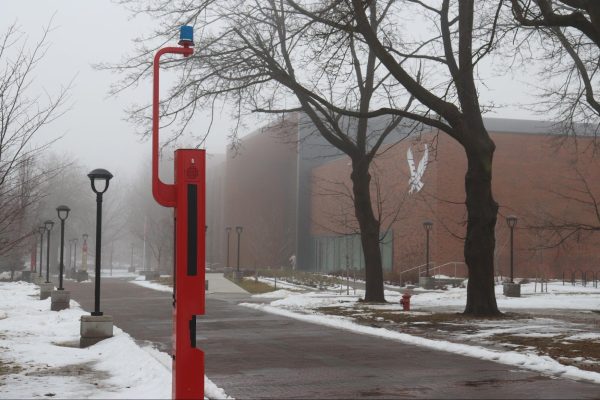SAFE may change university response to sexual assault
Proposed bill sparks controversy
December 6, 2015
The Safe Campus Act of 2015 (SAFE) is a federal bill put forth to address sexual violence on college campuses and was introduced July 29, 2015 by representatives Matt Salmon of Arizona, Pete Sessions of Texas and Kay Granger of Texas.
According to the bill, the purpose is “To amend the Higher Education Act of 1965 to protect victims of sexual violence, to improve the adjudication of allegations related to sexual violence, and for other purposes.”
If passed, the bill would require students to notify law enforcement before the school is allowed to take action in response to the assault or provide accommodations for such student.
According to an article written by John Sexton of the Breitbart, a news and opinion website, “Proponents of the bill argue the determination of guilt in these cases is serious enough that it should be handled more like criminal cases, i.e. access to witnesses, documents, and attorneys, plus the right to know what one is being accused of doing. In addition, involving the police could help by having professional investigators to sort out the truth and, possibly, to ensure a dangerous rapist isn’t given a chance to create more victims somewhere else.”
However, organizations such as the Clery Center for Security On Campus, a nonprofit dedicated to safe campus communities nationwide, oppose this bill. In a statement released on their website, the Clery Center said, “Supporters of SAFE argue that the legislation establishes a more equitable process by mandating the reporting of sexual assault to law enforcement before a campus can act,” and went on to say that, if implemented, “SAFE will hinder campus reports of sexual assault by mandating a system that removes power from survivors. This is especially disappointing during a time when as a nation we are making unprecedented progress towards increased awareness of sexual assault on campus.”
Despite additional provisions of the Safe Campus Act, such as who can or cannot be a campus security authority under the Clery Act and how long institutions can suspend student organizations, the Clery Center said, “None of these trump our primary concern that a piece of legislation in 2015 dictates a singular response to the complex issue of reporting campus sexual assault.” The Clery Center encourages people to support survivors’ option to report to law enforcement, but do not require it.
Another opposition is that SAFE contradicts Title IX, which entails that colleges and universities have an independent obligation to deal with sexual misconduct in a timely fashion, whether a police investigation takes place or not. The Clery Center said, “For some survivors, pursuing the law enforcement process may feel like justice; for other survivors, justice is walking into a classroom and not having to sit next to their rapists. Both of these options (and more) are offered under the Clery Act and Title IX in a manner that recognizes that everyone has different reactions to trauma.”
In response to this, Kappa Sigma member junior Alec Hubbart said, “I probably wouldn’t support it because it would take accountability away from fraternities. However, on the flipside of the coin, there are people who get falsely accused … But not nearly as much as people who get sexually assaulted.”


















